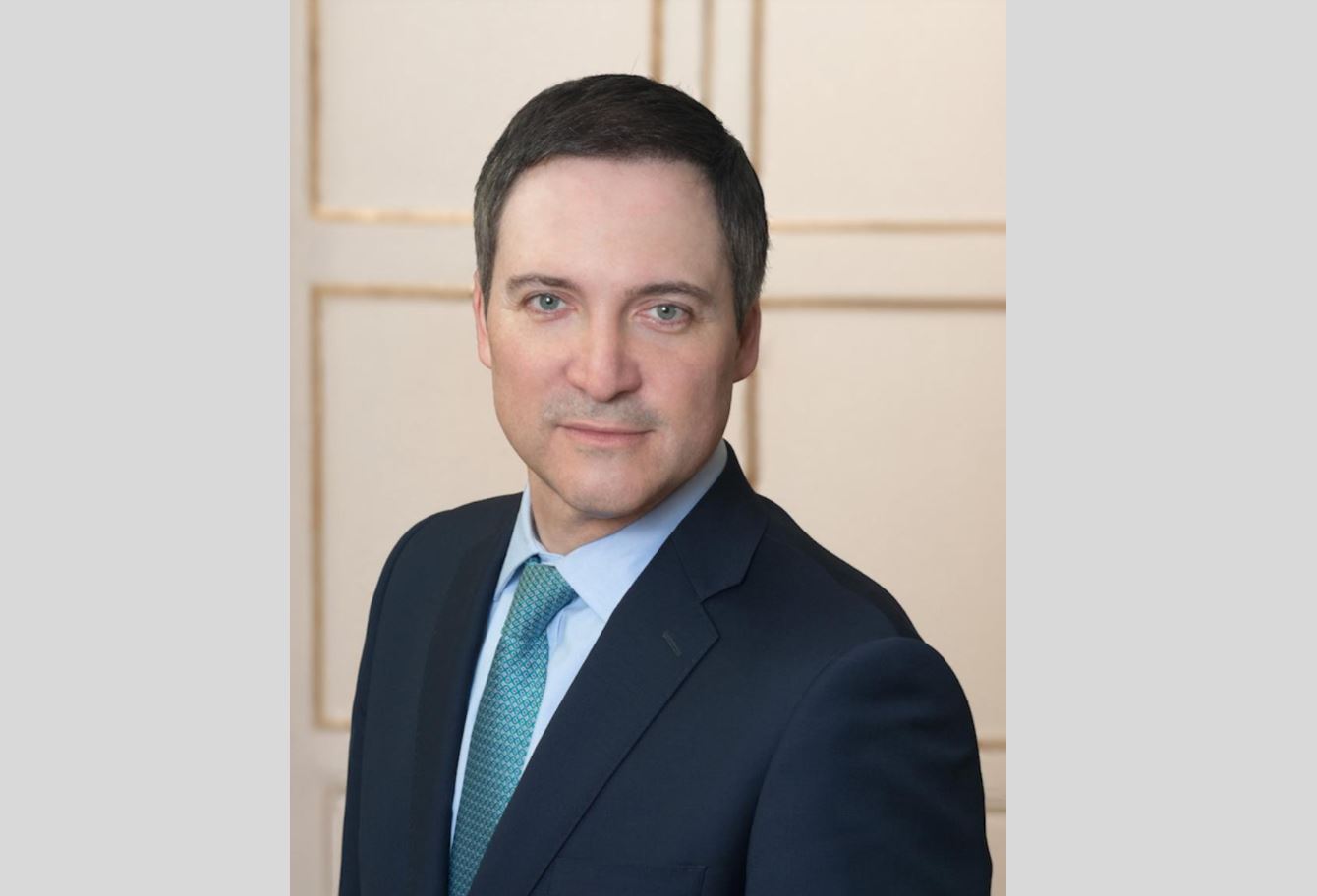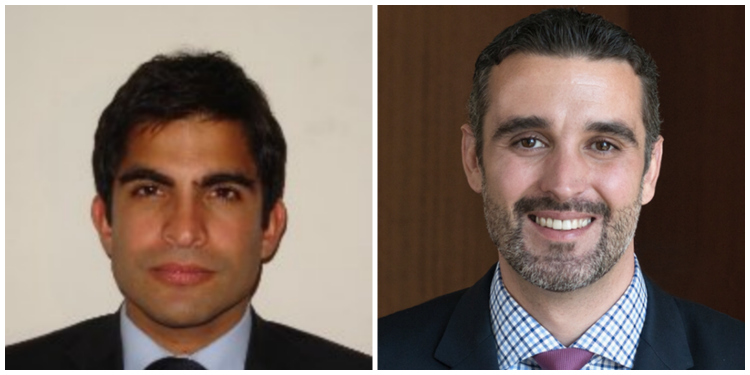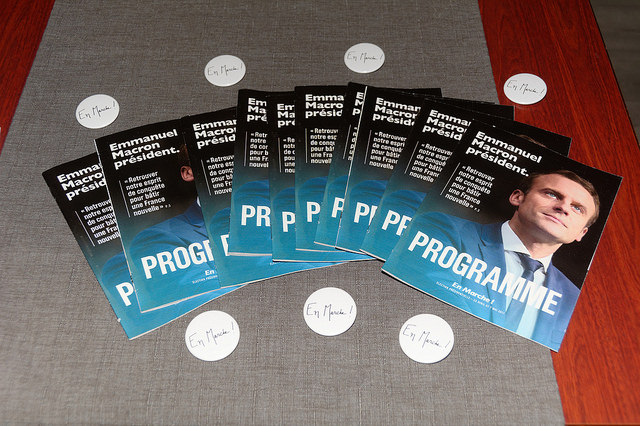Some years ago, we could not have imagined a world as dominated by politics as it is today. For investors, this has become a challenge, although not devoid of opportunities, according to Jean Médecin, an advising member of the Investment Committee of Carmignac. In an interview conducted in early April in Miami, Médecin shared his market view with Funds Society: “There are opposing forces: the economy is doing relatively well, but there are many fears about what will happen on the political arena. In my opinion, there is an opportunity for investors to look beyond politics and focus more on the economic environment”.
Goodbye to Globalization, Hello to Inflation
We are reaching a double peak: On the one hand, we are witnessing maximum liquidity, as central banks are normalizing monetary policy, and on the other, we are probably at the height of globalization, as with Trump’s protectionist policies, Brexit, etc., the signing of any global trade agreement becomes unlikely.
“In any case, what seems certain is that inflation will return, and you have to know how to handle it.”
In order to face this new reality, Médecin recommends studying opportunities in those countries that are better positioned to navigate this scenario. “Emerging markets are not badly positioned, despite what one may think. The United States’ trade deficit is equal to or greater with Germany than with Mexico”, he points out.
Médecin reiterates that we cannot lose focus. Although equity may seem less attractive than fixed income due to its volatility, the analysis of what has happened in the last 120 years puts the data in perspective. In nominal terms, during this period of history, we have witnessed two decades of negative returns for equity and none for bonds. However, if we introduce the effect of inflation and look at this statistic in real terms, bonds have five decades of negative returns, compared to only three for equities. “This illustrates the need to consider equities in investment portfolios. You need to get out of your comfort zone,” he says, referring to fixed income investment.
Médecin argues that we are not so much in an expansionary cycle brought about by the Trump administration’s promises, which is called Trump Inflation, but that we are actually facing an acceleration of the economic cycle that began before Trump won the elections, and has coincided with his inauguration. “The economic improvement is much broader and is not centered solely on the United States, but, for the first time in many years, is occurring globally, and therefore, is much more robust,” he claims.
In this context, notes the expert, “possibly, now is the time to be very selective, and also to start from a totally global investment universe.”
A Global Universe Expands Possibilities
Médecin cites the financial sector as an example, “It’s as important to know what you want to have in your portfolio, as, above all, what you want to avoid.” Within this sector, the banks that are trading at cheaper rates would be in Europe and Japan. The political uncertainty that Europe can present at the moment, makes the Japanese banks come out of this comparative analysis with the advantage. “I pick the Japanese banks: in terms of valuation they are the same as the Europeans, but there is no political uncertainty.”
We can look for other examples in very pro-cyclical sectors, such as the automotive industry, which should be driven by economic reactivation, but which, in the United States at the moment, has a clear regulatory risk with the possible introduction of tariffs for goods imported from Canada and Mexico. “A global investor can look for opportunities in other cyclical sectors, such as the retail sector, but we avoid American companies with mass production in Mexico, and look at companies like Inditex, Zara’s parent company, which has a business model that favors local production, making it much less vulnerable to the imposition of protectionist tariffs.”
Avoid Concentration
The interest rate environment is bullish, evidently in the United States, but also gradually in Europe. This context also represents a risk for fixed income investors, a particularly “treacherous” asset class at the moment, according to Médecin.
However, outside these two geographical areas, Médecin points out that there are opportunities in fixed income, especially in some Latin American markets such as Brazil, where real interest rates are very high and inflation trends are downward, which will gradually lead to a downward environment in interest rates. “Brazil is at the threshold of a virtuous circle in which interest rates will be reducing gradually, allowing the government to lower its cost of debt service,” he reaffirms.
However, Médecin points out that Latin American investors should avoid over-reliance on fixed-income markets in their local markets. “There are always factors of uncertainty, whether political, ecological, or economic, that do not allow you to act if you are over concentrated. I recommend expanding the spectrum. A common mistake is to overweigh what is ours, because it is what we know and trust. When it comes to diversifying, I think we should invest in those asset classes that give us an equally strong conviction.” Thus, Médecin explains that a good proxy for Latin American fixed income can be investing in the stock market in sectors that tend to behave in a similar way to a bond, such as electricity distribution in Brazil. Likewise, Latin American investors can diversify their portfolio of local bonds without leaving the region, although through equity stocks with high growth prospects, such as the regional leader in E-commerce, Mercado Libre, which is one of the most overweight positions within Carmignac’s global equity strategy.
As with equities, when it comes to fixed income Medecin points to two key aspects of investing in this environment. “Firstly, to actively manage the risk, being able to change the exposure as opportunities or risks appear, and secondly, to have a very global investment universe in order to be able to access all the opportunities as they arise.”
Some Advice on Risk Management
Médecin does not reject any particular asset. He knows that it is very difficult to anticipate disasters such as that of Lehman Brothers in 2008. However, he believes that it is essential to have the flexibility to react and to quickly undo the positions of the assets that become distorted. Carmignac has been able to react very well in times of market shocks “At the end of the day, our mandate is to protect and grow our clients’ wealth”, he points out.
In order to minimize risk, the expert points out that it is important to have adequate portfolio construction. “Do not be unidirectional in their construction”. For example, in their global equity strategy they mix a cyclical portfolio, with a growth portfolio. “We hold technology stocks, such as Facebook, which attenuate the volatility of other more cyclical sectors. In Europe, with the current elections, we do not want to be overexposed to stocks that may respond with great directionality to the outcome of these elections, whatever that may be.”
Carmignac also uses currencies as a shock absorber for these external swings. Sometimes, the management company takes positions in foreign exchange due to the belief that they will generate value. They started the year relatively optimistic on the Euro-dollar because they believed that the consensus in favor of Dollar strength was extreme and baseless.
To conclude, Médecin reiterates his warning: “We must be very prudent with fixed income, government and credit. It does not offer enough compensation for the risk involved, especially in high yield.” With regard to equities, he restates that stock selection is fundamental since the positive behavior of stocks will depend on their ability to accelerate the growth of business performance.
“In this respect, 2017 can be the year in which active management makes a comeback. Active managers tend to have much better results once central banks leave the scene,” Médecin concludes.


